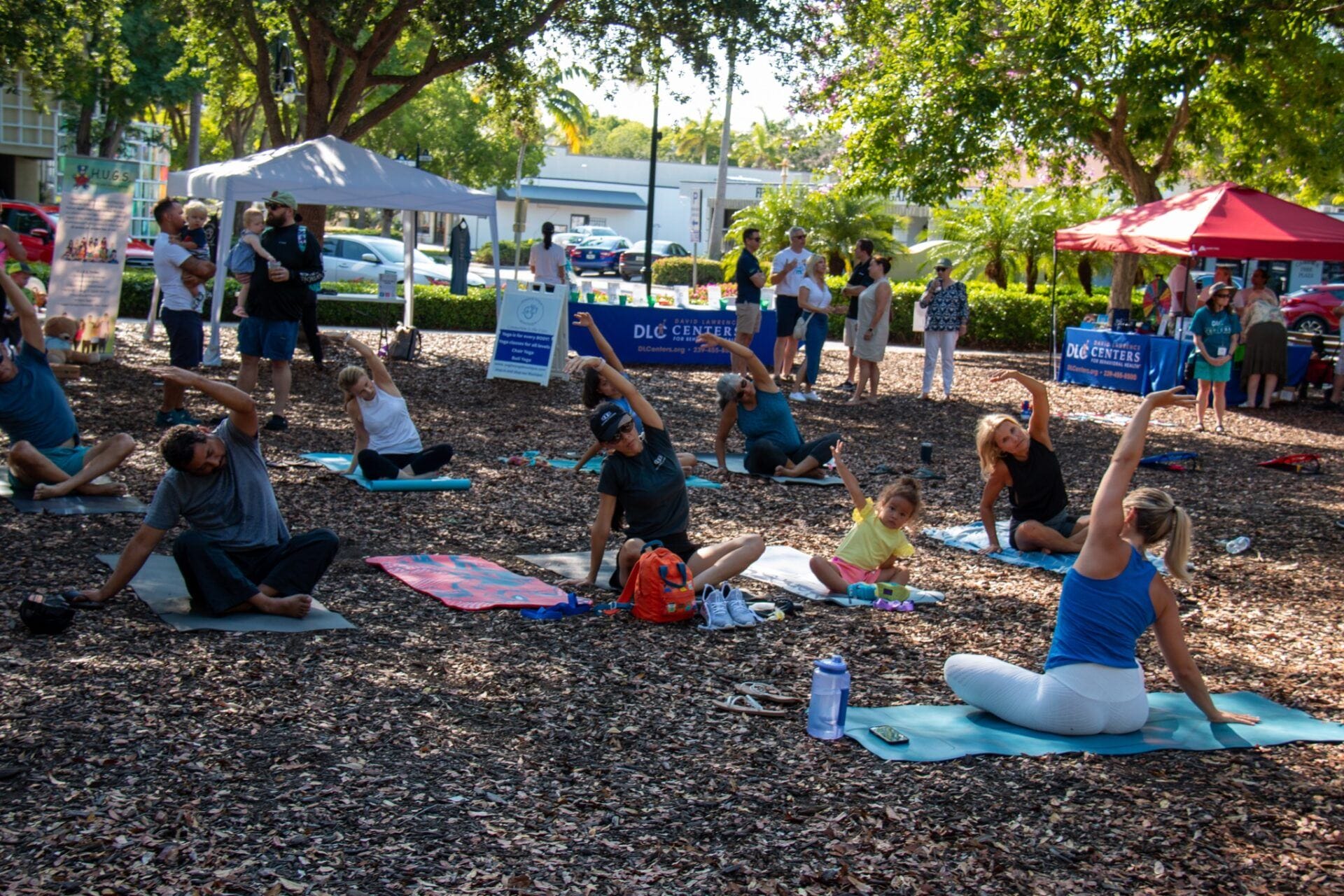
The Inner Work of Hurricane Recovery: Leveraging Self-Reflection for Helpful and Meaningful Action
By DLC Community Partner, Lisa Gruenloh, MPAP, CPC, Founder and President of Purpose Journey®
In times of crisis, our emotions can be in a constant and confusing state of flux. For example, as our Southwest Florida community moves forward in the aftermath of Hurricane Ian, we may experience these contrasting feelings:
Completely overwhelmed with concerns about damaged homes
Gratitude that we’re alive
Guilt that our situation was not as bad as that of others
Anxiety about what the future holds
Deep appreciation for help being provided to us
It can be disorienting, to say the least. While recovering from a major natural disaster like Hurricane Ian can be taxing physically, it can also take a significant toll on our mental and emotional wellbeing.
Here are some self-reflection exercises and journal prompts to help you navigate the ups and downs (and swirls) with more ease, as well as some ideas to ponder.
Why pausing and reflecting matters
There is an endless number of things to do and people to help, yet taking time to pause, breath, and reflect can help us cope more effectively and move forward with clear, confident, and helpful action. This is especially important to those who are working with contractors or insurance adjusters, or who are looking for temporary or permanent housing. At a time like this, there are critical decisions that are required, and we do not want to make those decisions feeling unsettled and/or depleted.
A mindful reflection practice allows us to have more focused, clear thinking; acknowledge our experience and emotions with compassion, and stay grounded in who we are and what’s most important to us.
ASK: “How am I feeling and experiencing this event?”
When moving through crisis and challenge, feeling complex emotions is understandable and often unavoidable. At the same time, we know that being in the constant grip of certain emotions can impact our ability to continue forward with hope and clarity.
Identifying and labeling our emotions is the first step in helping to reduce their power over us. Acknowledge what you are feeling – all of it, without judgment. Even if you don’t think you have time because there are so many important things to do (and that is true), use a notebook or journal to capture your thoughts and feelings about what has happened. This method of externalizing our emotions – getting them out of our head and onto paper – can provide emotional and mental relief.
Doing so does not make what we are experiencing go away, but it can give us a sense of acknowledgment and awareness that represents an important step on the path to healing. It also points us to situations that might need our attention. For example, frustration is a common emotion during crisis. Identify the sources of the frustration. Explore ways to overcome them or at least cope with them while the situation plays out. Moving into deliberate problem-solving mode helps us access the cognitive parts of our brain and interrupts moments of emotional hijacking.
ASK: What is outside of my control?
We tend to avoid this question. Wanting to control our individual circumstances – and often the behavior of others – is a natural part of being human. We have a basic instinct and need for security and certainty. The reality is that there are many situations that are, in fact, out of our control. Even though we know that to be true, it’s difficult to accept on a good day, let alone when we are in crisis mode.
Being clear on what is and what is not within our control is crucial for maintaining emotional balance and mental well-being. If you are working with insurance or assistance agencies, waiting to get calls returned, site visits scheduled, and desperately needed cash or resources in your hand is stressful. You file the paperwork and persistently make follow-up calls, but things are going to happen when they happen, despite your best efforts.
Acknowledging those realities, rather than resisting them, can bring relief. It doesn’t mean you are giving up or not holding others accountable—it’s being present to what is. Switching gears in this way allows us to focus on what is in our control and what we can influence – and that is where our power lies.
ASK: What is within my control and influence?
Everyone has different levels of agency, ability, and assets. And there are often distressing limitations to what is locally available or easily accessible, even for people of means, even with all of the humanitarian efforts taking place. Often very difficult decisions must be made to address the extreme circumstances. As you consider options and next steps, remember that every action you take toward recovery, however small, activates your sense of control and personal power. Make a list of everything you can think of within your control, including every resource and option you might have.
Here are examples of questions to consider asking yourself:
- What other more immediate resources are available to me?
- What interim steps can I take to ensure I and my loved ones are safe and secure?
- Who do I know who would be willing to help and how?
- Can I ask for flexibility with work, school or with other commitments?
Don’t edit or evaluate your thinking, just make the longest list you can. Don’t limit yourself to what you think you already know and allow yourself to be surprised by what you come up with. Make it a game. When you’ve exhausted your thinking, come back to it later and brainstorm again. Only then, begin the process of evaluating ideas so you can optimize your creativity and expand your options.
ASK: What core values and inner strengths can I engage?
An immediate way of regaining a sense of empowerment is by getting grounded in our core values and strengths. As we see others or personally experience devastating events, it’s not uncommon to internalize a sense of pain and suffering. Writing our feelings and contemplations down on paper is a helpful practice that separates the experience we are moving through from who we are.
Feeling intense sadness, loss, and anxiety is part of being human, and so is embracing love, compassion, and hope. This is the time to remember and activate all of our core values and strengths: courage, humility, patience, inspired action, integrity, kindness, generosity, and so on. What are your core values and strengths that you can leverage during this experience? Many people find strength in and are guided by their spirituality or faith tradition. Going deeper in your principles and practices can not only offer comfort, but it can also help us grow spiritually and cultivate emotional resilience. What principles and practices will best support you now?
When in helping mode, consider how you might need to honor people’s feelings and experiences. If one of your strengths is positivity, recognize that someone in the midst of crisis might not be in a place to hear well-intentioned expressions and affirmations that “all is or will be well’ or “you will come out better on the other side.” They need your uplifting presence and to be supported with words of hope and optimism. The point is to be supportive and encouraging, while also being sensitive to where people are emotionally, in the moment, especially at the unsettling initial stage of a crisis when they are still trying to get stabilized. They might just need you to hug them, and then put on your gloves to collect windblown yard debris or remove flooded, soggy drywall. Getting dirty or bringing a meal to a work crew are acts of love!
ASK: “What is mine to do?”
Being centered in your values will help you answer this question. Catastrophic events offer endless opportunities for those less impacted to serve in meaningful ways. What financial resources can you contribute? What supplies and resources can you share? What unique talents and skills can you put to work? What time can you give? Giving and volunteering, in general, have extraordinary well-being benefits. In a crisis, they help us cope as we witness the loss and empathize with the suffering of others.
Think about the non-profit organizations or service agencies you are passionate about or already support. They likely need extra resources now. Mobilize your workplace, church, or affinity groups and participate in community outreach projects together. Sometimes the most impactful thing you can do is simply being there for someone. Provide a loving set of ears to hear someone’s story. Call and check in on a friend, neighbor, or colleague. Offer to take someone dealing with home damage out for a meal or invite them to your home for dinner. As much as having their basic physical needs met, people moving through any kind of challenge need to feel seen, heard, loved, and cared for. Each of us can do that for someone.
ASK: “How can I take care of myself?”
For those who are highly empathetic and natural “helpers,” remember to pace yourself and practice self-care. Whatever you are doing to be of assistance, it might never feel like enough in the context of the crisis. Know that it is enough, and that you are enough. Resist the temptation to compare yourself and your actions to what others are doing. It’s not a competition. If this applies to you, think of yourself as part of a larger community-wide team and visualize the collective impact that you are a vital part of.
Try not to let the tried-and-true self-care basics fall through the cracks: eat healthy food, drink lots of water, stay active, get a good night’s sleep, maintain important social connections, and carve out time in your day to unwind and be in silence for awhile, if you can. Be mindful of how much media coverage and screen time you’re engaging in. If you do not currently have a daily reflection practice, try journaling about the difference you are making and the things you appreciate in your life. Grief and joy can co-exist. That’s part of our emotional complexity. Notice your thoughts and feelings. When you feel overcome with difficult feelings such as sadness, explore how the root of that feeling is actually grounded in love, compassion, and empathy to experience some relief from the heaviness.
Closing Thoughts
Devastating events, time and again, bring people together. While we don’t ask for natural disasters, when they show up, they invite us to rise to become the best of who we are as individuals, families, teams, and communities. In some cases, we learn about people and neighborhoods we never knew about and discover deeper community needs that require our ongoing care and attention.
Events that shake us to our core often shine light on what matters most to us and can serve as inspiration to reprioritize our life, or to take a bold new action that we otherwise might not have had the courage to pursue. They often take us deeper into gratitude and appreciation for the people in our life and all that we have.
While it might be too early in the recovery process for some, remember that with every crisis there is opportunity. Think about your life experience. When did something positive come out of a challenge that you didn’t necessarily want or expect? Take one of those challenges and explore how it unexpectedly helped facilitate positive change for you or others.
When you feel ready to explore a more recent life challenge, including perhaps Hurricane Ian, try this Positive Intelligence model for finding a gift or opportunity:
A gift of knowledge: What did I learn that will help me grow or improve my life in some way that will have huge payoffs for me and others in the future?
A gift of power: What innate strengths and core values developed and are growing stronger because of this experience?
A gift of inspiration: What bold action am I inspired to take that I likely would not have otherwise pursued, if not for this challenge?
Until then, let’s just be here for one another.
Lisa Gruenloh is an International Coaching Federation (ICF)-certified executive and emotional intelligence coach and Positive Intelligence coach. She’s Founder and President of Purpose Journey®, a consulting, training and coaching company that helps individuals and organizations harness their unique values, strengths, and purpose with bold action to optimize their well-being and impact. During the COVID pandemic, Lisa launched a new venture publishing and donating writing journals and offering workshops to non-profit organizations. Her Journal for Change initiative is now a 501(c)(3) organization that brings the transformational practice of journaling to non-profits nationwide. Learn more at www.purposejourney.com and www.purposejournal.com.
Oct 10, 2022 | Blog



